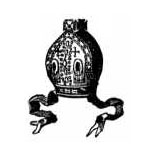
The Pope’s Problem
GUEST COLUMN
Even popes have problems. And Pope Benedict XVI is no exception.
His “Regensburg lecture” raised the ire of the Muslim world and provoked spasms of violence when he quoted the words of a Byzantine emperor. More recently, the comments the Holy Father made about condom use in Light of the World, a book-length interview with Peter Seewald, elicited outbursts of concern throughout the Western world.
Yes, the Pope has a problem: He expects something from his listeners and readers.
As a professor and theologian of many years’ standing, he’s accustomed to addressing educated audiences — audiences able to employ logical and rational skills, audiences that grasp subtleties and interpret remarks within their proper contexts, that take the time to evaluate and consider comments at length and don’t resort to knee-jerk reactions. Pope Benedict realizes his problem. In Light of the World, he said, “I had conceived and delivered the [Regensburg] lecture as a strictly academic address without realizing that people don’t read papal lectures as academic presentations, but as political statements.”
You May Also Enjoy
Bush's "faith-man" believes Ratzinger could be a good pontiff if only he will be "compassionate toward all God's children."
The Pope plainly stated, "To kill in the name of God is satanic," but again he studiously avoided identifying Muslim terrorists as perpetrators of this.
After only three months of papal rule, Celestine decided to abdicate the papacy and return to the hermetical life in the rocky ranges of the Maiella.

